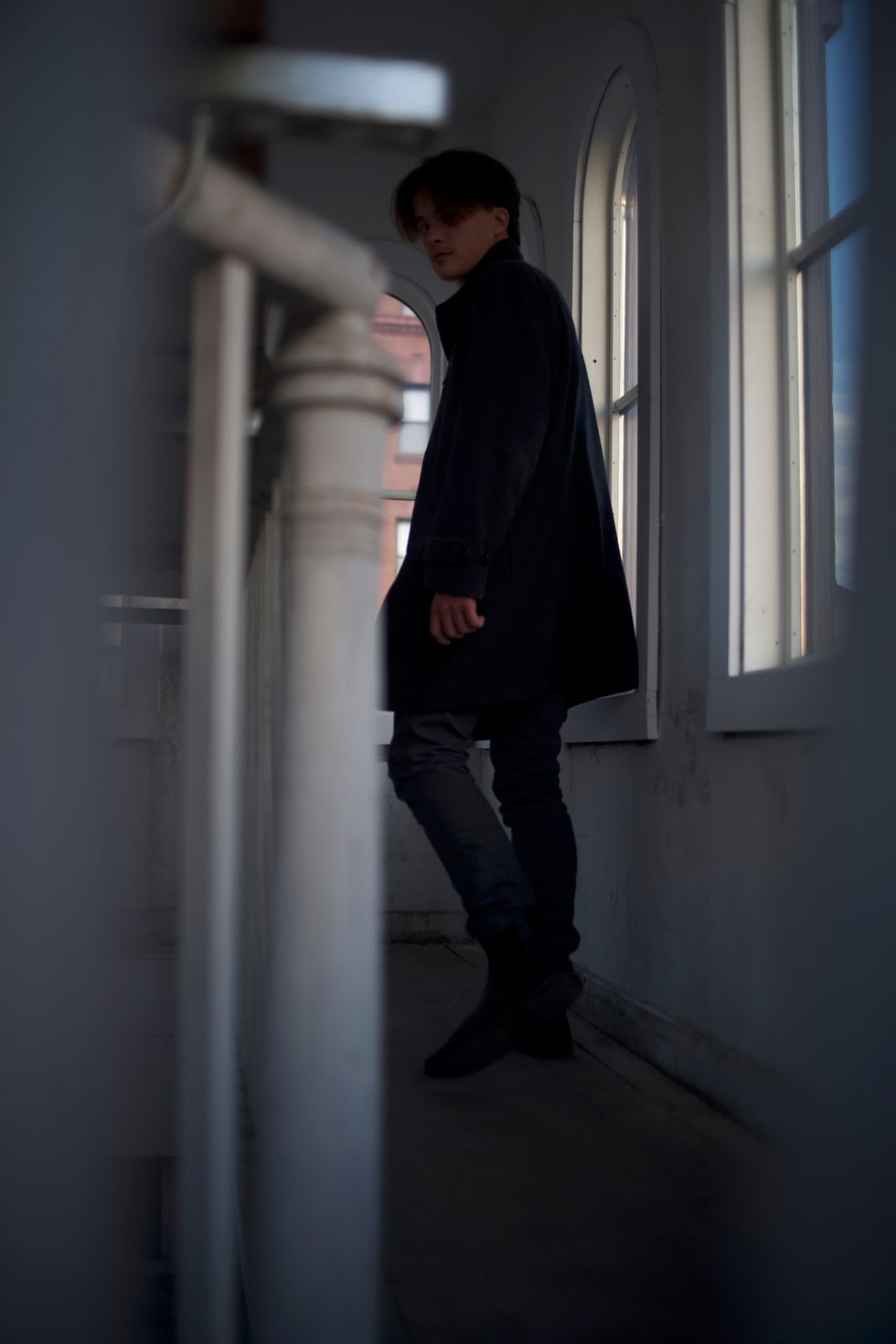
Julien Chang Gets Complex on 'Home for the Moment'
By Tobias Hess
Mar 04, 2024Singer Julien Chang speaks in ideas. Talking with him on a cold afternoon over Zoom, I could almost hear the machinations of grammar as he speaks — the em-dash, the Oxford comma, the semicolon. It reminds me of the strange familiar cadence I came to know in college, where I found myself set aside from the world, my mind both honed-in and roving as I tried to parse through dense tomes of language. Often, in class, we would speak in some form of prose, and I came to like and struggle with the difficulty of this linguistic dance. I could hear this dance in Julien. We’re the same age and share a close friend and collaborator. These connections made his EP, Home for the Moment, and our conversation hit with a special force for me.
“Being home after college — I guess Freud would call it ‘a crisis of ambivalence,’” he says. “There was this discomfort with the transition but not a fear of it. It was more like a desire. Desire and discomfort, you know, are closely related.” I nod, remembering the meandering hope I felt after graduation, where the question of “next” was infinitely unsure.
Written in his hometown of Baltimore, his four-song EP came like a “bang” after a long period of musical indecision and creative toil. “It was [written] at the end of my obligatory six months of aimlessness after graduating,” he says. “Then I was like, I have to do something. In a week, bang, four songs.”
Those songs range in sound and tone, but all feature a slyly complex composition and Chang’s muted, poetic singing. There’s the propulsive wander of “Looking At People” where the titular line repeats like a swirl with the phrase “Turning on their heads.” And there’s the song “Home For the Moment,” which is quiet and brooding as it snakes through feelings of stasis and transience. The video for the song was made with his longtime friend Lydia Cornett, whose close collaboration evoked the nostalgic air of the song. “[Lydia and I] have very similar life trajectories: same neighborhood, same elementary middle school and high school, then the same college.” The video is impressionistic and toggles between what appears as found video and warmly lit shots of Chang wandering, playing the piano and performing. “Lydia got the complexity of home without it becoming sentimental,” Chang says.
The EP is both a departure from, and a honing-in on, what made his first two projects so special. His debut, Jules, was released when he was just 19 and was well-received by taste-making outlets like The Guardian and Pitchfork. There was an uncanny musicality to the project, an orchestral scope and a slightly psychedelic edge you can hear in the layers of organs, pads and the bare hint of the ‘70s pop. His follow-up, The Sale, released while he was in the thick of studying German literature and philosophy in college, had a more percussive urgency and grittier surface. Today, Chang’s dense musicality and expansive references still persist, but there’s a simplicity to Home for the Moment..

Maybe it's the kind of simplicity that comes from the clarity of stasis, the clarity of being home. That simplicity, however, doesn’t always translate to clarity of message. Chang is clear about the limits of music to “say something,” in the literal sense. He made a point to this effect in our conversation, but he was sure to follow up over text to further clarify the thorny philosophical argument. “Music, of all arts, is perhaps the best poised to get ‘beyond’ representation [as in a depiction of things, ideas, etc],” he writes. “The subject matter of music is often music itself,” he adds, which he notes in our conversation was the “chief virtue of music.” I took this to mean that music can exist on a more natural, more emotional level beyond the realm of argument or rationality. “I hope my music would strike you in a way that is powerful enough to make you become slightly estranged from your normal routine,” he finishes.
It’s a simple hope filtered through his dense world of ideas. But I got it. What is music, after all, but an invitation for us to approach our daily experience differently? To hear something strange and then feel something new?
Photography: Tommy Waldo
Related Articles Around the Web
MORE ON PAPER
ICONOS: Pepe Aguilar, El Oficio del Tiempo, la Voz del Silencio y el Peso del Legado
Español
Jan 19, 2026
Entertainment
Cynthia Erivo in Full Bloom
Photography by David LaChapelle / Story by Joan Summers / Styling by Jason Bolden / Makeup by Joanna Simkim / Nails by Shea Osei
Photography by David LaChapelle / Story by Joan Summers / Styling by Jason Bolden / Makeup by Joanna Simkim / Nails by Shea Osei
01 December
Entertainment
Rami Malek Is Certifiably Unserious
Story by Joan Summers / Photography by Adam Powell
Story by Joan Summers / Photography by Adam Powell
14 November
Music
Janelle Monáe, HalloQueen
Story by Ivan Guzman / Photography by Pol Kurucz/ Styling by Alexandra Mandelkorn/ Hair by Nikki Nelms/ Makeup by Sasha Glasser/ Nails by Juan Alvear/ Set design by Krystall Schott
Story by Ivan Guzman / Photography by Pol Kurucz/ Styling by Alexandra Mandelkorn/ Hair by Nikki Nelms/ Makeup by Sasha Glasser/ Nails by Juan Alvear/ Set design by Krystall Schott
27 October
Music
You Don’t Move Cardi B
Story by Erica Campbell / Photography by Jora Frantzis / Styling by Kollin Carter/ Hair by Tokyo Stylez/ Makeup by Erika LaPearl/ Nails by Coca Nguyen/ Set design by Allegra Peyton
Story by Erica Campbell / Photography by Jora Frantzis / Styling by Kollin Carter/ Hair by Tokyo Stylez/ Makeup by Erika LaPearl/ Nails by Coca Nguyen/ Set design by Allegra Peyton
14 October
Entertainment
Matthew McConaughey Found His Rhythm
Story by Joan Summers / Photography by Greg Swales / Styling by Angelina Cantu / Grooming by Kara Yoshimoto Bua
Story by Joan Summers / Photography by Greg Swales / Styling by Angelina Cantu / Grooming by Kara Yoshimoto Bua
30 September




